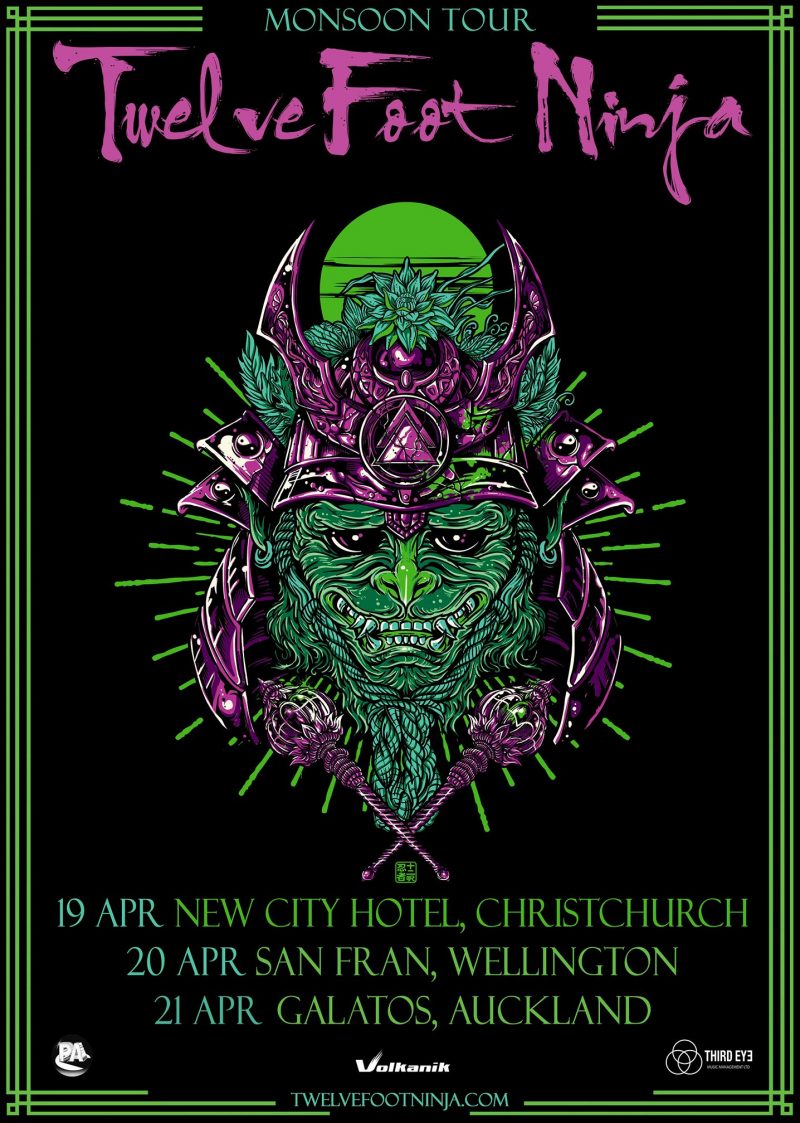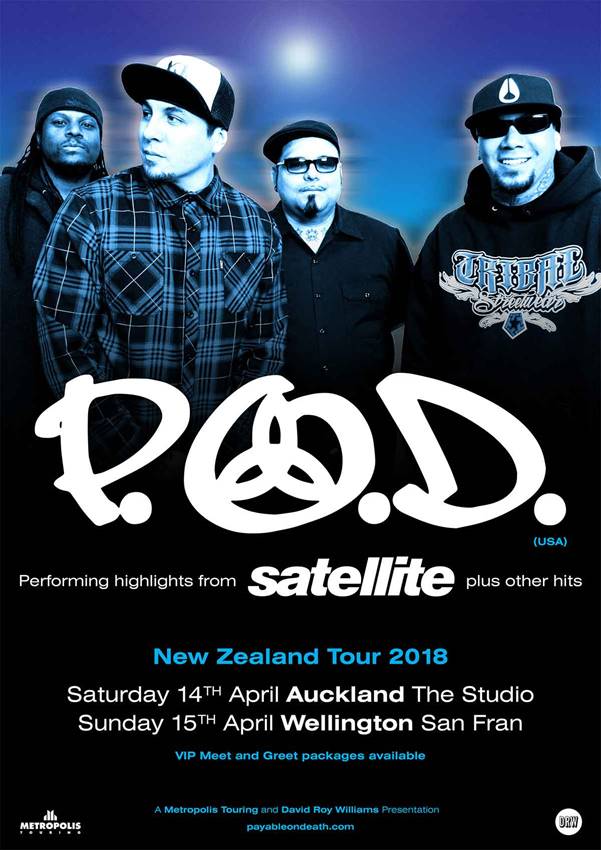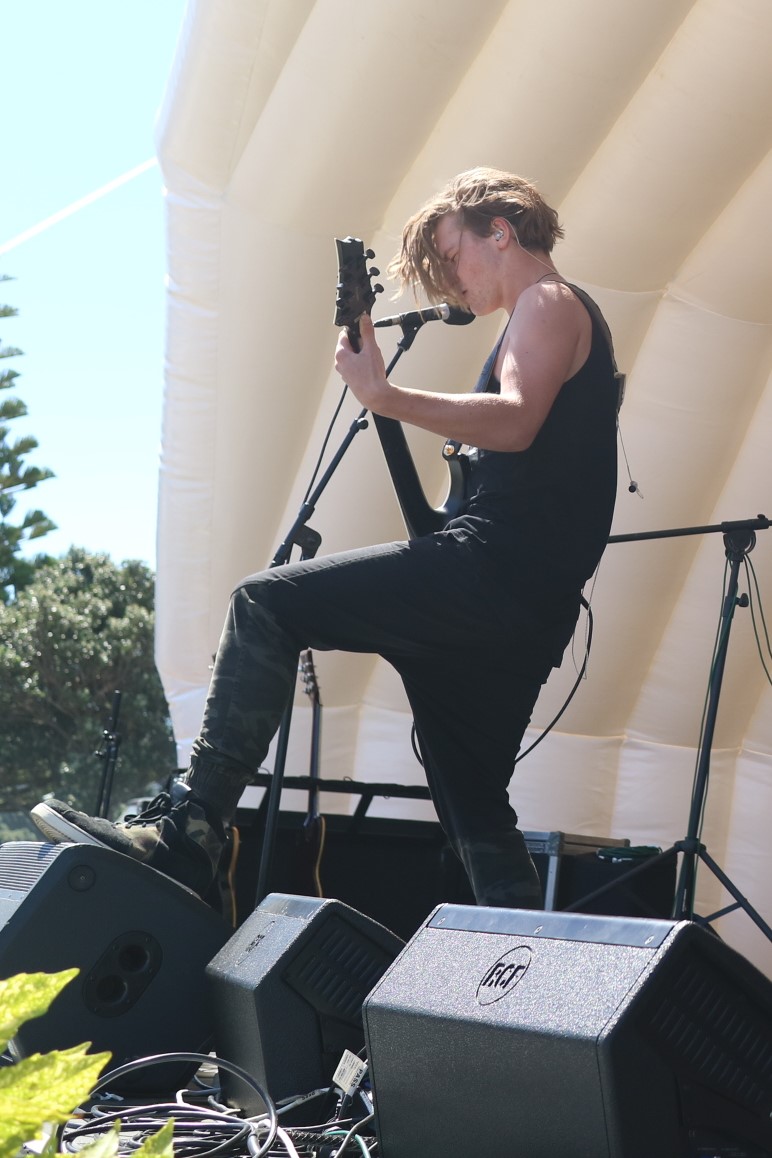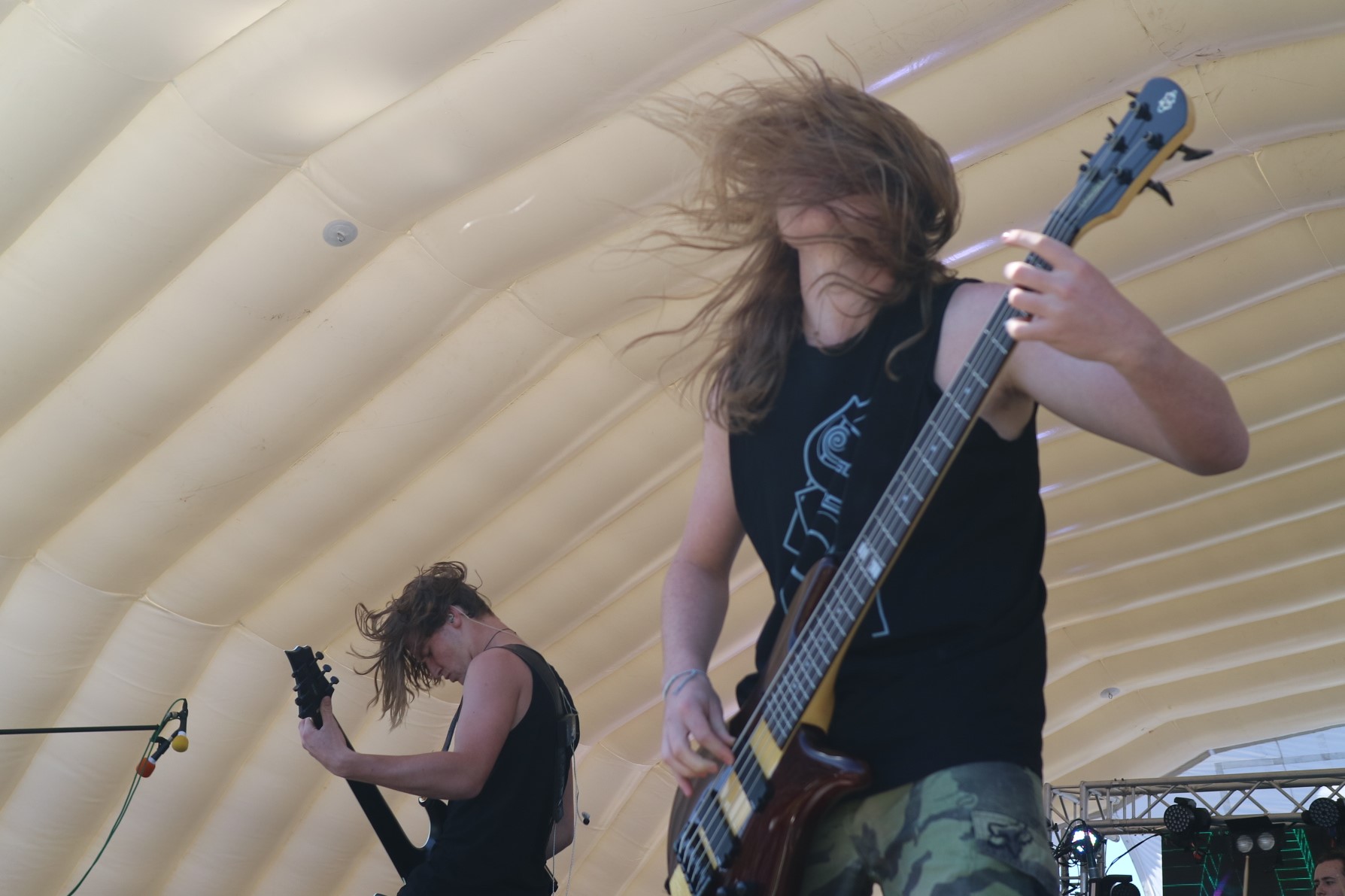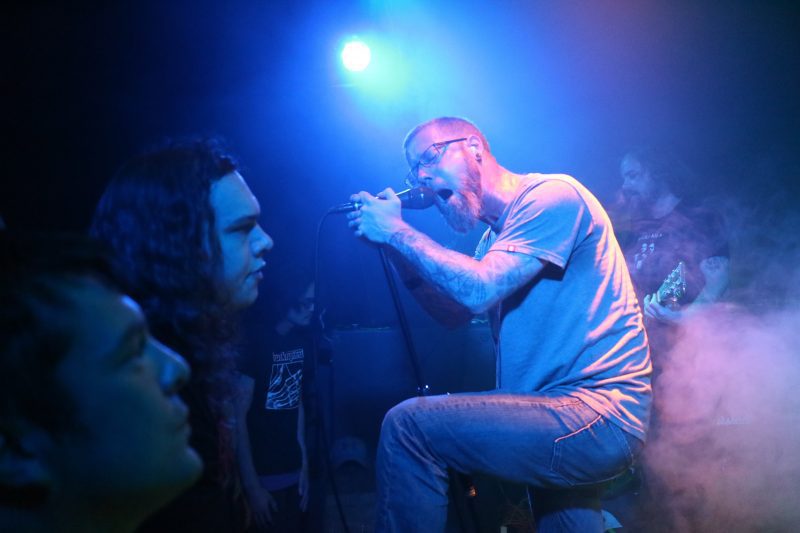Marcos Curiel has lots to be grateful for. He’s the founding guitarist of P.O.D (Payable On Death), the San Diego nu-metal crew formed in 1992 who boast three Grammy nominations and over 12 million record sales. He strikes me as modest, downplaying his achievements and humbly attributing any success he’s had to his fans and “the beauty of music”.
When I ask him about the longevity of his band, he deflects the focus away from the band and towards his fans.
“We are very gracious and thankful for this and to fans that are so loyal. Whether in South America, Europe, here in the states or even Australia or New Zealand. People still come up see us doing our thing and we are still riding that wave until that wave stops.”
But he’s also quick to credit his band members and crew for P.O.D’s success as well.
“I think a lot of it comes from our upbringing – having the same sort of background – basically coming from nothing. And just aspiring to want to play music for people and just doing it, acting out on it and building a following. We were independent before we signed to a major label and kept saying that there was an audience there for what we were doing. It encouraged us to continue to do it and encourages us to keep doing it today even though we are 25, 26 years deep.
“We are definitely a second family on the road. We were basically teenagers when we started jamming together. Now we are full on grown men with kids and families of our own. P.O.D is our second family, you know what I mean? We’re probably together more as a band then we are with our own family sometimes. You know, we travel the world together. We are in an airplane, we’re in a bus… we are always travelling together as a band and with our crew”
Curiel is also a fan of New Zealand, having come several times in the past decade. Last time they co-headlined with NZ act Rapture Ruckus. Before that they’ve toured with Disturbed and played Edgefest. He begins the interview just gushing about our country.
“Given the opportunity, if I had to leave the states and go somewhere else to live and I always say New Zealand. . . Maybe I could even retire there.”
In recent years P.O.D have tried new directions, putting out an acoustic record (SoCal Sessions, 2014), and a concept album (The Awakening, 2015). I ask if the latest single, “Soundboy Killa” will be part of any upcoming album and Curiel admits that he isn’t sure at this stage.
“Well that is kind of a transitional single kind of thing We put that kind of to let our fanbase know that hey we’re working on new music, we’re still here – you know what I mean? I don’t even know if that’s going to make the record. Some people are like ‘That should go on the record!’, and we’re like ‘well… you never know…’ We’ll figure it out.
“Actually, we just signed a new deal with Mascot Labels. And they’ve taken us on, and hopefully releasing the new album in the summertime here in the States. We’re currently writing and working on pre-production which started in November. We were in the studio last week and we’re working through December, but we’re taking time off for holidays and we’re going to jump back in in January and head on tour here in the States. And jump back in and hopefully record that record in March and drop it in the summer.
“It’s been pretty cool, because we usually get one producer to do the whole record and on this album we’re working with different producers and different production crews. We’re working with HEAVY – they’ve done stuff with Sublime, The Dirty Heads. .. Just a bunch of different artists. And we’re working with Cameron Webb – he’s produced NOFX, Pennywise, Motorhead… He’s actually the producer of Soundboy Killer.
“We’re just trying different things, man. We’re at a stage in our career that we don’t really have to go out and say ‘hey, look at us, we’re a band.’ You know who we are and you either like us or you don’t. We have freedom to be able to experiment and do what we want, how we want to do it. Which, quite frankly, is pretty awesome.”
One interesting fact about P.O.D that draws attention is that they collaborated with the then-unknown Katy Perry for their song “Goodbye For Now” back in 2005. This remains a seemingly hot piece of trivia, despite the fact that the band have also collaborated with many other artists from acts like In This Moment, Suicidal Tendencies and Bad Brains.
Curiel wasn’t part of the band during that period, so never actually met her. He tells me what he knows about the collaboration though.
“They were working with Glen Ballard for Testify and she was one of his protegés – so to speak – that he was trying to get up and get out there in the scene. She was always hanging around the studio and wanted to go on a track. The guys became friends with her and she actually performed on the song on The Jay Leno Show, I believe. That’s how that all came to be. She will occasionally tweets about the band, tweet out how much she loves ‘Alive’ and certain songs. That’s pretty cool.”
POD are known as a Christian band, which earns them flack from both atheists and churches. In my experience, non-believers are often quick to condemn anyone of faith. And many conservative churches dismiss POD because of the company they choose to keep, playing along the likes of Marylin Manson and at metal festivals such as Ozzfest.
Marcos virtually scoffs when I ask him about this. “Do you know what’s crazy about that? I call it scenester stuff,” he explains, “I know vegans who are in hardcore bands, and I’m like, so what… you’re only gong to play with hardcore vegan bands? No, they’re playing with all different types of bands – you know what I’m saying?
I understand, I explain, my friends in Declaration AD used to get similar criticism. People would question their motives, asking things like “Why would a band of Christians choose to play alongside death metal bands? This strikes a chord with Curiel. He proceeds to explain that he tries to write music for all walks of life, not just Christians.
“Christian people maybe want to hold themselves to be the poster children, but that’s not what we’re called to do. We want to write music that inspires everybody. And so we took an approach that we’ll play most of the shows, because we want to play for everybody.
“But as far as being caught in the middle – we don’t look at it like that. We are a band of faith. Definitely we have our personal beliefs. We try to write music that connects with multiple cultures and different types of people.
“I think that’s the beautiful thing about being an artist. There’s people who are gonna understand your art, and some that won’t. The thing is, we’ve never really tried to become, at an early age we were a little more – so to speak – old in the faith. We never knew there was metal, or punk rock or any kind of scene that was a Christian scene. The band that we referred to as a major influence was U2. We’ve always look at them as inspiration. They had Christian roots and have written songs that are very conscient of humanity, or being positive in general, and we’re taken that approach – obviously playing a different style of music.
“And when we went to Singapore we found ourselves playing in front of Muslims. And they were singing ‘Alive’! And we were like ‘What the heck!’, we were tripping out at it. But at the same time, that’s the beautiful thing about music – it’s universal.
“What we get our inspiration and a lot of our confidence. First of all, it comes from that Chrstian faith, but we don’t go out and say ‘Hey, we’re this and that’s who we are.’ We’re just a rock band, man, that wants to inspire . We have our struggles and try to write songs about those struggles and we try to encourage all walks of life.
“The Beastie Boys, towards the end of their career they all about Free Tibet, and Jay was a Buddist, and they were playing with everybody, from Pearl Jam to Jane’s Addiction.
“You know how it is. Music should be universal. People have certain beliefs that drive their music, and that just happens to be ours.”

I feel that the way he concludes the interview is incredibly indicative of his character: positive and humble.
“We’re excited to get down there. We love your country and everything about the culture – the energy – and we cant wait to get down there and perform. Bring some Southern California vibes down there!”
P.O.D Australia/ NZ Tour Dates
Saturday 14 April Auckland The Studio
Sunday 15 April Wellington San Fran
Buy tickets for New Zealand: https://metropolistouring.com/pod-nz/
Tuesday 17 April Melbourne 170 Russell
Wednesday 18 April Adelaide The Gov
Friday 20 April Sydney Factory Theatre
Saturday 21 April Brisbane Eatons Hill Hotel
Sunday 22 April Gold Coast Coolangatta Hotel
Buy tickets for Australia: https://metropolistouring.com/pod/
P.O.D links:
Website: http://www.payableondeath.com/
Facebook: https://www.facebook.com/POD/
Twitter: https://twitter.com/POD
Instagram: https://www.instagram.com/POD/
 Coma Recovery links:
Coma Recovery links: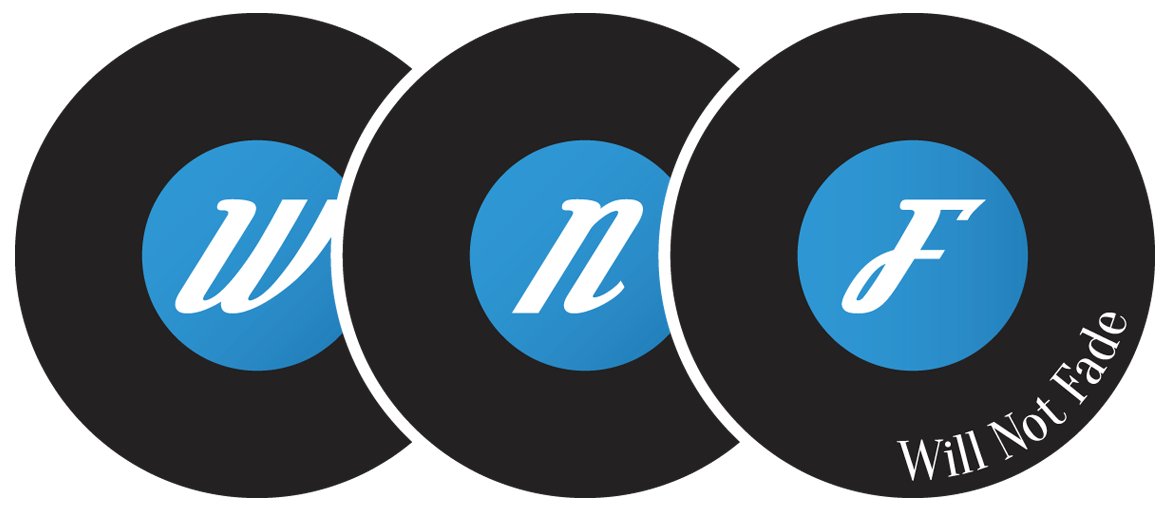
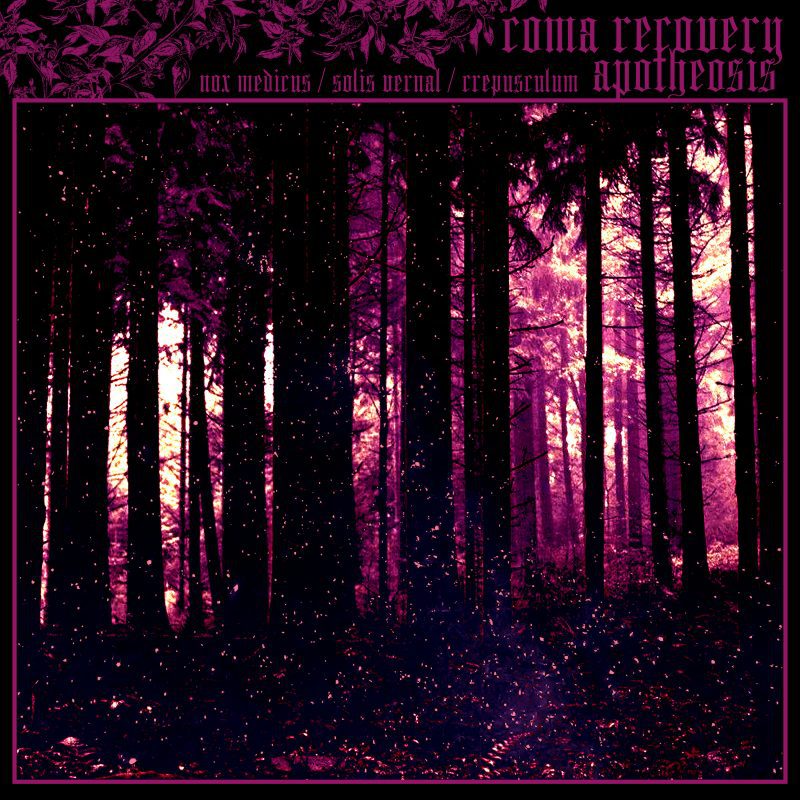
 Coma Recovery links:
Coma Recovery links: